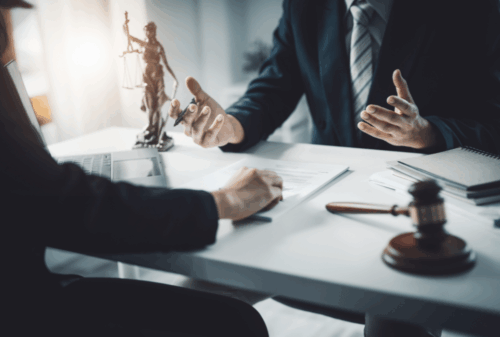At Turner O’Connor Kozlowski, PL, we work with professionals across Florida who find themselves facing professional discipline—often for reasons they never saw coming.
As licensed professionals ourselves, we know the dedication it takes to build a career in law, medicine, education, real estate, finance, or any other regulated field. You’ve invested years of education, training, and commitment to earn your license—and in many cases, your license is your livelihood.
But with licensure comes scrutiny. Professional boards don’t just monitor criminal activity or blatant misconduct—they evaluate ethical judgment, workplace behavior, administrative compliance, and even your ability to maintain professional boundaries. What might seem like a harmless oversight to you could trigger a formal investigation or disciplinary proceeding.
Worse yet, disciplinary actions aren’t always tied to bad intent. We’ve seen clients penalized for missed renewal deadlines, misunderstood reporting requirements, or substance issues they thought were under control. The process can feel overwhelming, confusing, and deeply personal.
If you’re wondering what kinds of mistakes most often lead to professional discipline in Florida, our Gainesville professional license defense lawyers at TOK will walk you through the most common pitfalls we see—and how to avoid them.
Whether you’re in the medical field, practicing law, teaching, managing investments, or selling real estate, understanding these risks is your first line of defense. Contact us today at [phone] to know the pitfalls and proactively protect your license.
Failing to Report Criminal Charges or Convictions
Many licensing boards—including those in Florida—require you to self-report criminal charges or convictions within a defined timeframe. Under Chapter 455 of the Florida Statutes, licensees must report any conviction, plea, or adjudication in writing within 30 days to the Department or Board—failure to do so is itself a violation, which may carry penalties as if for the underlying offense.
Even a “minor” charge can spiral into a worse issue if you fail to report it. The legal standard isn’t just the offense—it’s whether you promptly disclose it. Delays or omissions often convey a lack of candor and may provoke an act of professional discipline more readily than the original offense might have, had it been disclosed promptly.
Substance Abuse and Impairment on the Job
Impairment—whether due to alcohol, drugs, or other conditions—is one of the most serious triggers for licensure investigation. Boards prioritize public safety, so if you appear impaired at work, you could be subject to professional discipline, including mandatory evaluations, compelled intervention, or referral to an impaired practitioner program.
Under Florida law, your refusal or failure to complete these programs can lead to disciplinary measures. Beyond jeopardizing your ability to practice, impairment can impair judgment, risk client or patient safety, and signal to your board that you’re unfit—even if no accident has occurred yet.
Boundary Violations with Clients or Students
Maintaining professional boundaries is crucial. Inappropriate relationships or communications—whether overt or subtle—can quickly escalate into complaints. Social media oversharing, unprofessional language, or blurred lines in personal and professional connections all raise red flags.
Boards may treat a perceived boundary violation as seriously as an actual violation. Even if you believe a post or comment was harmless, it may still invite professional discipline, scrutiny, or ethical complaint.
Poor Recordkeeping or Documentation
Accurate, timely, and honest documentation is the bedrock of professional practice. Missing, inaccurate, or falsified records—especially in billing, payroll, or client accounts—can result in serious repercussions during audits or investigations for professional discipline.
Florida law identifies the failure to file records or filing a false record as grounds for discipline. Mistakes in documentation may seem accidental, but boards often view recordkeeping issues as indicative of carelessness—or worse, intentional deception.
Practicing Outside Your Scope or Without a Valid License
Even routine administrative missteps can lead to violations. Performing services you’re not authorized for, or continuing to practice under an expired or lapsed license, is considered both unauthorized and unethical. Florida law explicitly prohibits practicing beyond permitted scope and failing to maintain licensure.
Such oversights—like missing renewal deadlines—can trigger automatic referrals or professional discipline, even without misconduct intent.
Ethical Misconduct and Conflicts of Interest
Accepting gifts, bribes, or undisclosed benefits? That’s a clear ethical violation. Failing to disclose conflicts—be it in research, contracts, client relationships, or referrals—risks appearing dishonest or self serving. Florida’s disciplinary grounds include “exercising influence on the patient or client for financial gain”—which is strictly prohibited.
Ethical misconduct undermines trust, not just in you but in the profession, and boards impose professional discipline penalties accordingly.
How to Protect Your Professional License
Risk isn’t always from intent. To shield yourself from professional discipline:
- Learn: Know your board’s rules thoroughly. Each profession and board has unique regulations—don’t assume general understanding is sufficient.
- Get support: When facing a complaint or under investigation, seek legal advice promptly. Early intervention can shape outcomes.
- Document: Keep meticulous records—billing, communication logs, licenses, renewals. Documentation may be your strongest defense.
- Stay proactive: Set renewal reminders, perform self audits; don’t wait until the deadline or complaint.
When Facing Professional Discipline, Hire a Professional Licensing Defense Lawyer Today
At the end of the day, most professionals don’t lose their license because of criminal behavior—they lose it because of avoidable mistakes. Failing to self-report something small. Sending a poorly worded email. Overlooking a renewal deadline. Misjudging a client interaction.
These are often honest errors, but licensing boards are not always lenient. Protecting what you’ve worked so hard to earn means staying informed, careful, and proactive.
We know how intimidating it is to be under investigation or receive a letter from your board and facing professional discipline. It can feel like your whole career is on the line—and in some cases, it is. But you’re not alone, and you don’t have to navigate this process without guidance.
At Turner O’Connor Kozlowski, PL, we help professionals just like you defend their licenses and reputations. So if you’ve received a complaint, notice of investigation, or are worried about something in your professional record, don’t wait for it to escalate.
Call us to schedule a confidential consultation. Let us help you protect everything you’ve worked so hard to build.




